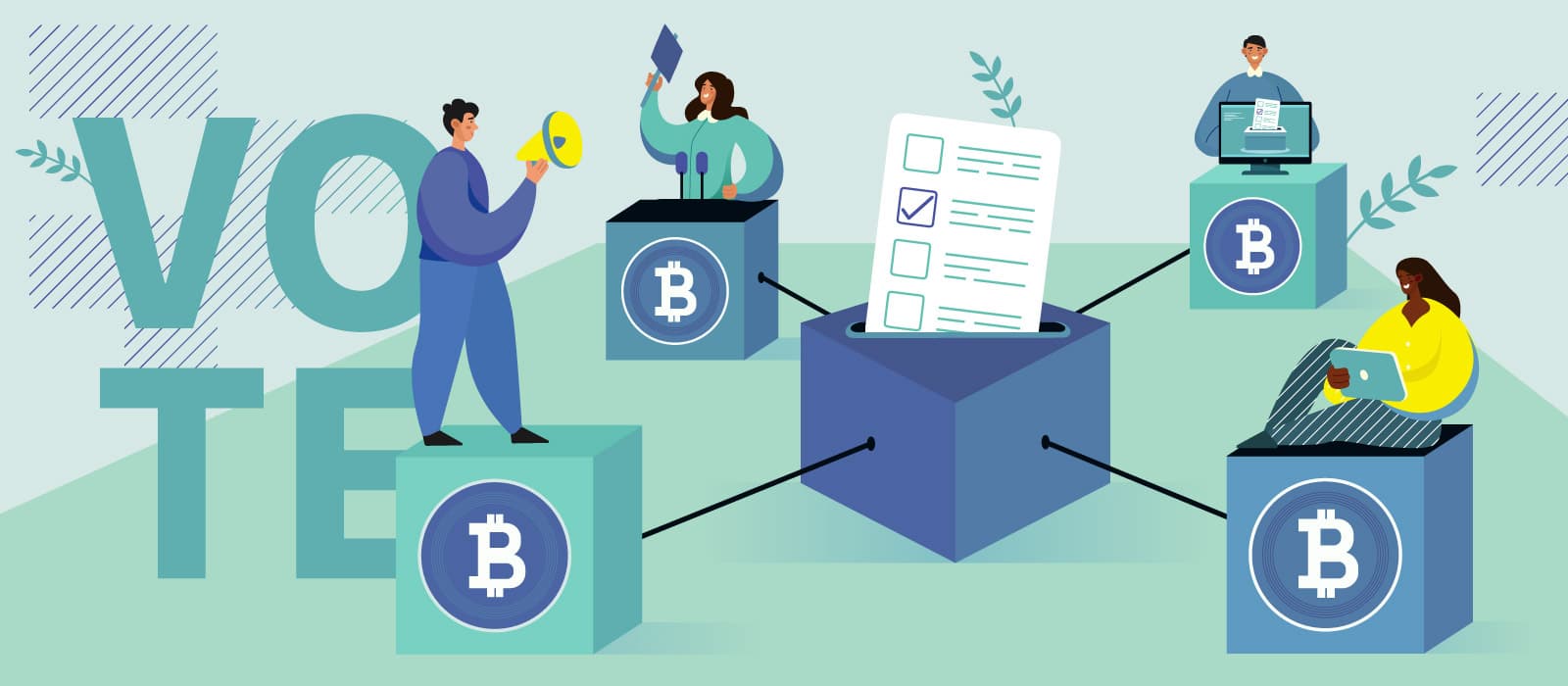The Future of Democracy: Blockchain Voting and Decentralization

In a rapidly evolving world, the very foundations of democracy are being reimagined. With the advent of blockchain technology and the principles of decentralization, the future of democracy is poised to undergo a profound transformation. In this article, we will explore the revolutionary potential of blockchain voting and the decentralization of power, ushering in an era where every citizen’s voice can be securely and transparently heard.
Blockchain Voting: Ensuring Transparency and Security
The Power of Blockchain
Blockchain technology, originally developed to underpin cryptocurrencies like Bitcoin, has proven to be a game-changer in various sectors, including democracy. At its core, a blockchain is a decentralized and immutable ledger that records transactions transparently and tamper-proof. When applied to voting systems, this technology can potentially eliminate fraud and ensure the integrity of the electoral process.
Transparency Redefined
One of the key issues in traditional voting systems is the need for more transparency. Citizens often need more visibility into the inner workings of the electoral process, leading to doubts about its fairness. Blockchain changes this paradigm by providing a public ledger that anyone can access and verify. Each vote is securely recorded, and the results are open for scrutiny by all stakeholders.
Enhanced Security
Security breaches and hacking threats have plagued elections in the past. Blockchain’s cryptographic algorithms and decentralized nature make it exceptionally resilient to cyberattacks. Votes are securely encrypted, and the distributed network ensures no single entity can manipulate the results. This heightened security can restore trust in the electoral process.

Decentralization: Empowering the People
Redistributing Power
In a traditional democratic system, power is concentrated in the hands of a few. Decentralization aims to change this by distributing power among a broader base. Through blockchain-based governance systems, citizens can participate directly in decision-making processes, bypassing intermediaries and reducing the risk of corruption.
Inclusivity and Accessibility
Decentralization fosters inclusivity. It allows citizens from diverse backgrounds to have a say in matters that affect their lives. Additionally, blockchain-based voting can be accessible to a wider audience, including those facing physical barriers to traditional polling stations.
Eliminating Voter Suppression
Voter suppression has been a dark cloud over many democracies. Decentralized voting systems can mitigate this issue by providing secure and anonymous voting options. Citizens can cast their votes without fear of discrimination or intimidation.
Transitioning to a New Era
The future of democracy is on the brink of a revolutionary shift. Blockchain voting and decentralization promise transparency, security, and empowerment. By embracing these technologies, societies can ensure that every citizen’s voice is heard and respected.
So, as we look ahead, let us embrace the potential of blockchain technology and decentralization to create a more just and equitable democratic future.







+ There are no comments
Add yours